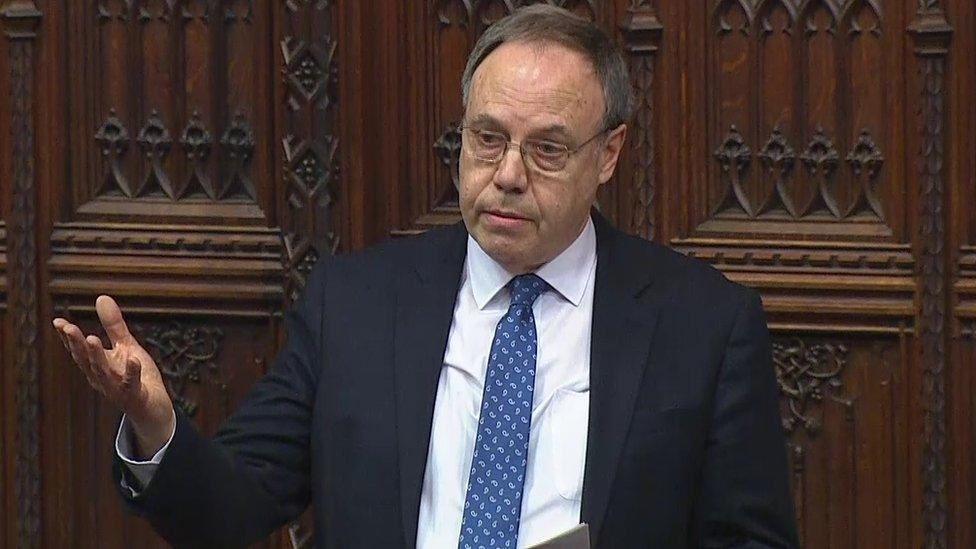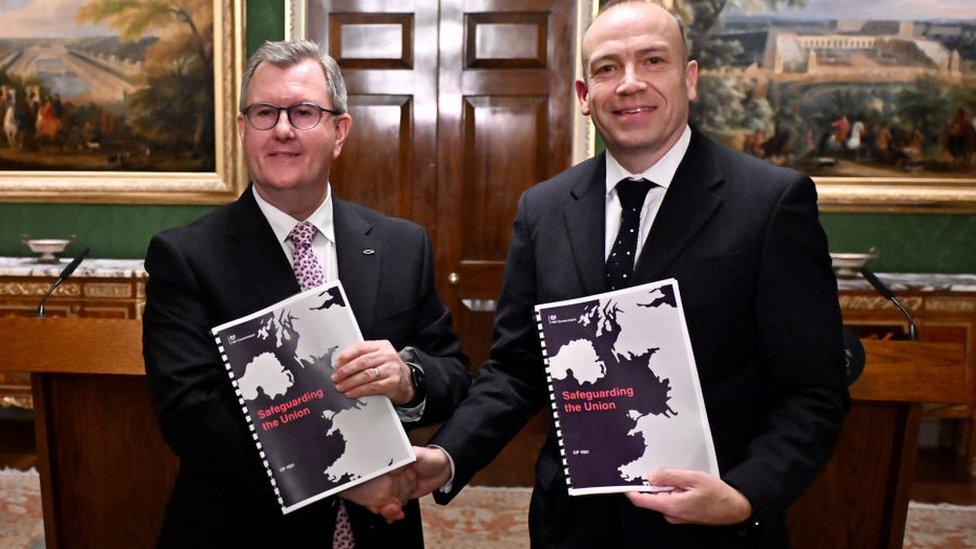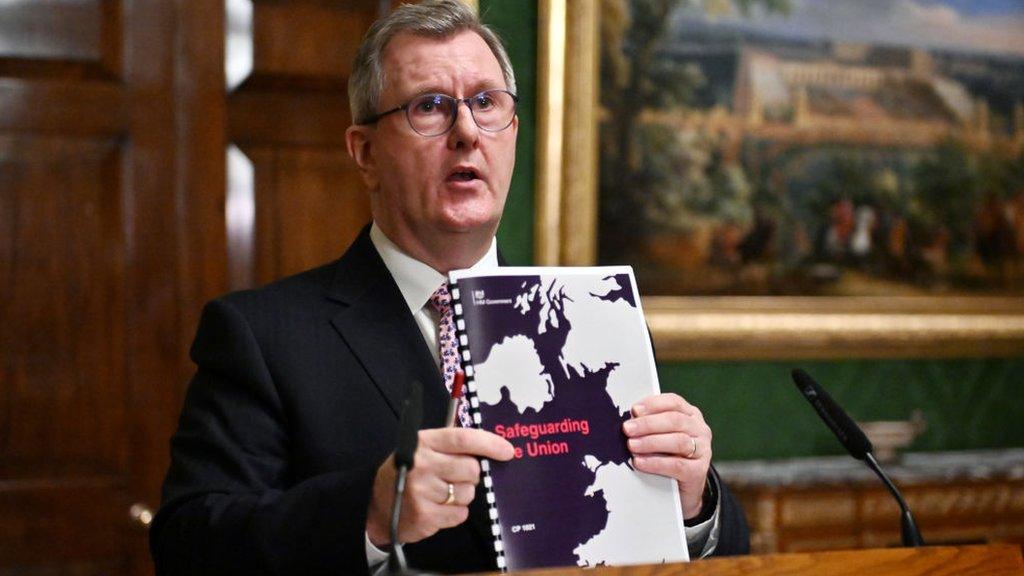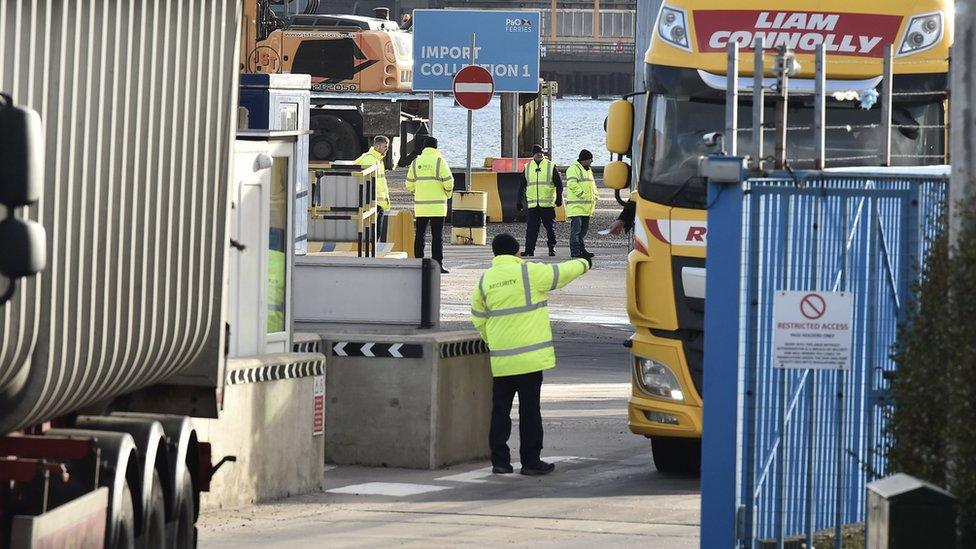Stormont: Humble address motion highlights DUP divisions
- Published

Lord Dodds said there was nothing in the humble address "which actually changes anything"
Deep divisions within the DUP have been laid bare again as MPs and peers passed a key motion in the party's deal to restore power sharing.
The humble address motion was proposed by the government to reassure unionists about Northern Ireland's place in the UK.
The humble address is a parliamentary procedure to send a message to the King.
It allows MPs and peers to vote on a motion without having to pass a bill.
The humble address was one of the government's commitments in the Safeguarding the Union deal agreed with the DUP.
But senior figures in the party who are opposed to the deal challenged the motion in both Houses of Parliament this week.
'Anti-unionist'
Before the Safeguarding the Union deal was agreed, the DUP had been blocking Northern Ireland's devolved government for nearly two years in protest against post-Brexit trade arrangements between Northern Ireland and Great Britain.
Former DUP Deputy leader Lord Dodds said there was nothing in the humble address "which actually changes anything" and he added the "anti-unionist contents" of the Protocol and Windsor Framework remained intact.
"This where the words collide with reality - where propaganda collides with the facts," he said.

Sir Jeffrey Donaldson and Chris Heaton-Harris after agreeing the Safeguarding the Union deal
Waving sheets of paper, Lord Dodds said "hundreds upon hundreds of EU laws" still apply to Northern Ireland without the ability of voters to change them.
Fellow Peer Lord McCrea accused of the government of "pulling the wool over the eyes of unionists" with the Windsor Framework, adding that London only ever cared about getting the assembly "up and running".
'Difficult decisions'
But his colleague Lord Hay defended the party leadership over how it negotiated the deal with the government.
He said the leadership had to grapple with "difficult decisions" while others can just complain from the sidelines.
Baroness Hoey sought to amend the motion as she challenged what she called the government's "rhetoric" and claimed the protocol continued to "over-ride and suspend" parts of the Act of Union.
But on Monday in the House of Commons DUP leader Sir Jeffrey Donaldson attacked those who had criticised his deal with the government.
He accused them of not understanding the true implications of restoring the Act of Union which he said would turn the clock back to 1801 when some goods moving GB and Northern Ireland were subject to tariffs.
- Published31 January 2024

- Published31 January 2024
